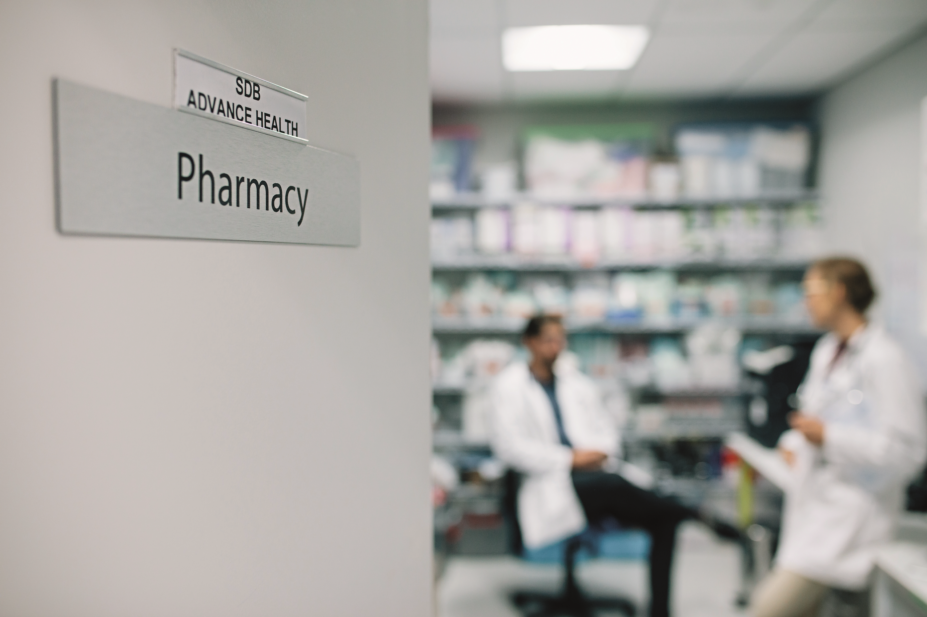
Shutterstock.com
As part of my prescribing course, I wanted to see how secondary care dealt with patients after primary care referrals. I arranged shadowing at the hospital with a paediatric respiratory specialist nurse and a prescribing nurse at the oxygen clinic and allergy clinic. I also attended pulmonary rehabilitation run by physiotherapists and occupational therapists. It was an opportunity to see different consultation techniques with different age groups, how other non-medical prescribers used their qualification in practice, how they dealt with prescribing issues such as off-label and formulary prescribing, and how primary and secondary care should work together to ensure continuity of care.
The most beneficial thing was seeing how these services benefit patients and how positively these interventions affect their daily life. With pulmonary rehabilitation, patients had regular talks on topics such as stress and relaxation, smoking cessation and inhaler technique, and were able to improve their lung function through exercise, which they could do at home.
The prescribing course is nearly over so the past couple of months have been really intense. I have had my objective structured clinical examination (OSCE), which I, thankfully, passed. It involved choosing a scenario and product and going round different stations and explaining how you would deal with the consultation, including examination techniques, how you would counsel the patient and finally writing the prescription. Sounds easy right? But I was a nervous wreck! I then had an exam, followed by the prescribing essay and then the portfolio with final sign off. One thing I would advise to those thinking about doing the course is to stay on top of your evidence log and write entries up as you go. Also once you have done the lectures, write up evidence for your portfolio regarding that topic while it is fresh in your mind. You will save so much time and be able to concentrate more on revision for your exam and prescribing essay.
Progressing on the CPPE pathway
There are four key stages and assessments to the Centre for Pharmacy Postgraduate Education (CPPE) pathway. Stage one involved the induction residential and completion of the General practice pharmacist training pathway evaluation and self-assessment before attendance. The pre-coursework was aimed to help with our own personal development planning and learning. Stage 2 involves setting up our Canvas e-portfolio, passing the CPPE Consultation skills e-assessment, completing a case-based discussion assessment and gathering and reflecting on multi-source feedback, which I am in the process of doing. To complete the pathway on top of the prescribing course has been a challenge but my CPPE education supervisor has been understanding and supportive. I have had the flexibility to put a pause on the pathway until I complete the prescribing course. The learning sets have covered learning disabilities, which is one of the NHS England key performance indicators of the pilot. As a group we have looked at how to address stopping over-medication of people with a learning disability and how to support people with a learning disability to optimise their medicines.
Mental health study day
The CPPE mental health study day was informative. It was led by the University of East Anglia and a specialist mental health pharmacist, Steve Bazire. The evidence-based information provided us with the knowledge to help educate and support patients with a mental health condition to optimise their medicines. Personally, I found the handout useful because it provided a lot of information on topics such as dealing with side effects, switching and stopping antidepressants and other pearls of wisdom that I was able to relay back to the other clinicians at my practice. We also looked at strategies to help support patients to reduce or stop benzodiazepines and z-drugs. This was useful because it is now one of our area clinical commissioning group initiatives to improve safety and quality for benzodiazepine and z-drugs prescribing in general practice.
You may also be interested in
The importance of diverse clinical imagery within health education

Entrustable professional activities: a new approach to supervising trainee pharmacists on clinical placements
